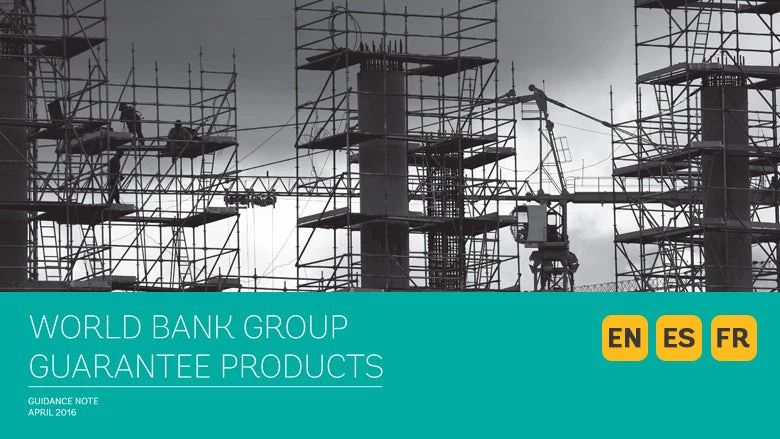Just two years ago, Ghana was experiencing unstable commodity prices and a deteriorating macroeconomic situation. Yet, through a unique combination of World Bank guarantees nearly $8 billion in private investment was mobilized for the Sankofa Gas Project—the biggest foreign direct investment in Ghana’s history. The transformational project helped address serious energy shortages and put the country on a path to economic growth.
This is just one example illustrating how risk mitigation products play out in practice to encourage private sector investment and improve people’s lives.
A new guide released by the Public-Private Partnership in Infrastructure Resource Center (PPPIRC) based in the Singapore Hub for Infrastructure and Urban Development, the World Bank Group Guarantee Products Guidance Note summarizes key features of the guarantee and risk mitigation products offered by each of the World Bank Group institutions: the International Bank for Reconstruction and Development (IBRD) and the International Development Association (IDA), which together make up the World Bank; the Multilateral Investment Guarantee Agency (MIGA); and the International Finance Corporation (IFC).
Increasing fiscal constraints and overwhelming demand make it more critical than ever to maximize investment in crucial, growth-boosting infrastructure in low- and middle-income countries. Public budgets and loans from multilateral development banks will not be enough.
“Crowding-in” private sector financing through risk mitigation and guarantee products that leverage the World Bank Group’s credit rating is a way to attract additional financing that may not have been available otherwise due to the risk profile of the project. Because many of these products have evolved over the years it is not always easy to understand each one’s unique attributes.
The publication highlights similarities and differences among them—in particular how guarantee products can support Public-Private Partnerships (PPPs) for infrastructure projects in emerging markets . It originated from requests the PPPIRC has received over the years from client countries and staff for guidance on the range of the World Bank Group’s risk mitigation products. It is also available in French and Spanish.
More examples of projects that have used risk mitigation products include:
- A combined MIGA/IDA guarantee in Lao PDR for Nam Theun 2 Hydropower Project allowed the largest investment in the country and the largest cross-border project financing in the East Asia and Pacific region.
- An IDA guarantee in Cameroon for the Kribi Gas Power Project enabled local currency financing in a market with little previous experience with local project finance to infrastructure projects.
- An IFC local currency risk sharing facility in Guatemala City credit-enhanced the TransMetro Mass Transport System.
- A MIGA guarantee in China covered risks of transfer restriction and expropriation for the foreign sponsor (Suez Environnement S.A.) in the Chongqing Water Project, which catalyzed foreign investment in a sector and country that has not always been easy for foreign investors to enter.
Another recurring theme: the World Bank Group’s convening power provides the push needed for the private sector to become involved in projects . Often, the Bank Group focuses the guarantees on “path-breaker” projects, which may catalyze further investment by allowing the government to establish a track record of good behavior with the private sector.
We hope this overview helps you navigate the various World Bank Group guarantee products. Please let us know your thoughts by providing comments below.
The PPPIRC is managed by the World Bank Group’s Public-Private Partnerships Cross-Cutting Solution Area’s (PPP-CCSA) team in the World Bank Group's Hub for Infrastructure and Urban Development in Singapore.
Related Posts
Being the 'honest broker' for Ghana’s one-of-a-kind energy deal
We look forward to hear from you: Flagging a new World Bank Group consultation on the Guidelines for the Development of a Policy for Managing Unsolicited Proposals in Infrastructure Projects. Submit your feedback here - Now open through May 7, 2017.




Join the Conversation